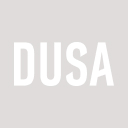
${item.excerpt}
Featured in ${item.section}

${item.excerpt}
Featured in ${item.section}



We asked students about academic integrity breach outcomes for our 2024 Academic Integrity Awareness Campaign.
The information available on this page is from our 2024 Academic Integrity Awareness Campaign. This campaign is commended in the 2025 Studiosity Tracey Bretag Prize for Academic Integrity.
Deakin’s Student Academic Integrity Procedure outlines the different Outcomes for Student Breaches of Academic Integrity in the Schedule A Document. There are a range of breach types with varying outcomes. We understand that there is lots of information about academic integrity allegation breach types, however it can be difficult to know how these work in practice.
DUSA’s 2024 campaign focused on educating students about the standard outcomes that are received if a student is found to have a substantiated allegation.
DUSA’s Student Advocacy and Support Service team ran an on-campus activity for Deakin students at Burwood, Waurn Ponds, Waterfront and Warrnambool campuses in late August – early September 2024.
DUSA Advocates presented students with a corflute containing brief descriptions of two academic integrity breach behaviours and asked, ‘What happens if…?’ and students selected an outcome for each behaviour from a range of options.
There were six descriptions of breach behaviours presented to students across three corflutes: What happens if…
A total of 852 students participated in the activity. 555 students completed the on-campus activity and 302 students completed an online version of the activity.
For the Scenario ‘Sam has someone else write their assessment’:
For the Scenario ‘Lee buys their assessment answers online’:
The above scenarios are all considered contract cheating, and all have the same standard outcome for 0 for the unit for first substantiated breach.
After the activation, students could participate in an optional survey.
Of the 140 students who responded:
DUSA Student Council Vice-Presidents, Paul and Kate, filmed a series of brief interviews with Deakin students at Burwood campus on the topic of academic integrity. The interview reels can be accessed via the DUSA YouTube channel.
We hope to continue raising awareness about academic integrity. It is important that students understand:
Deakin’s Student Academic Integrity Policy and Procedure, Language and Learning Advisers, The Deakin Guide to Referencing, Writing Mentors, Maths Mentors and the Deakin Library Librarians – just to name a few!
If you’re not sure where to start, reach out to us and we can help point you in the right direction!
